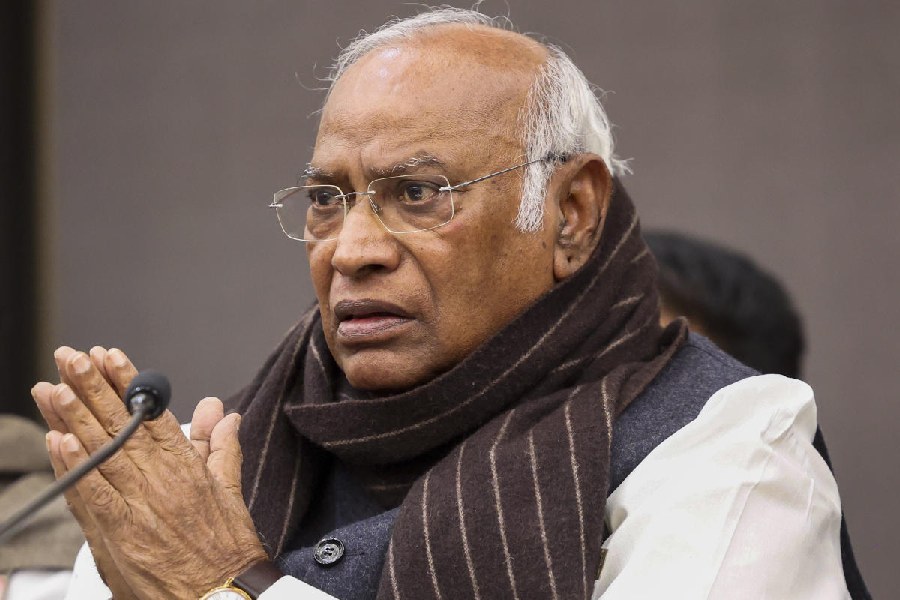Congress president Mallikarjun Kharge on Tuesday picked on Prime Minister Narendra Modi’s self-proclaimed “unbounded capacity to take risks”, blaming him squarely for the rupee’s downward spiral.
In targetting Modi for the falling rupee, the Congress was essentially trying to turn the tables on him for his relentless attacks on then Prime Minister Manmohan Singh for the depreciation of the Indian currency on his watch.
A day after the rupee reached its lowest-ever level of 86.82 against the dollar, Kharge addressed the Prime Minister directly in a post on X and said: “Your government is unable to arrest the steep slide of the ever-weakening rupee which has breached the 86.50 mark now.”
He said “whitewashing” facts would not hide the reality of high inflation “biting every single paisa out of the pockets of our people”.
Kharge said: “People have already suffered enough from your ‘risk-taking capacity’ and want the Indian economy to be saved from your disastrous policies.”
In a recent podcast with Zerodha co-founder Nikhil Kamath, Modi had spoken about his risk-taking capacity and how only a fraction of it had been tapped till date.
According to Kharge, the people are suffering the massive repercussions of the government's inability to arrest the slide. He attributed the inability to “rank incompetence” and listed the fall-out: forex reserves falling to a 10-month low, massive withdrawal of foreign capital from Indian equities, investors losing ₹24.69 lakh crore in wealth in four days of market slump because of unabated foreign funds outflow and the steep fall in the rupee, increased import costs resulting in skyrocketing price rise and the impact of trade deficit on balance of payments.











